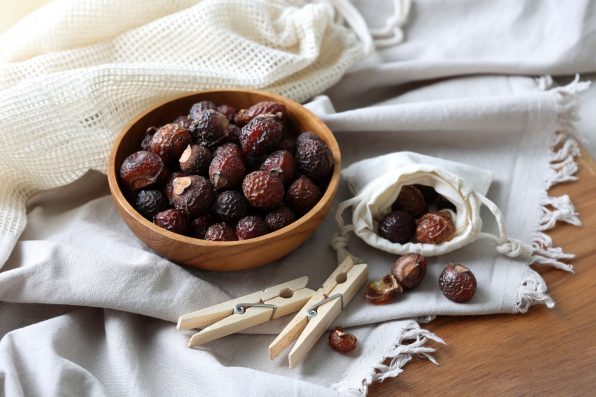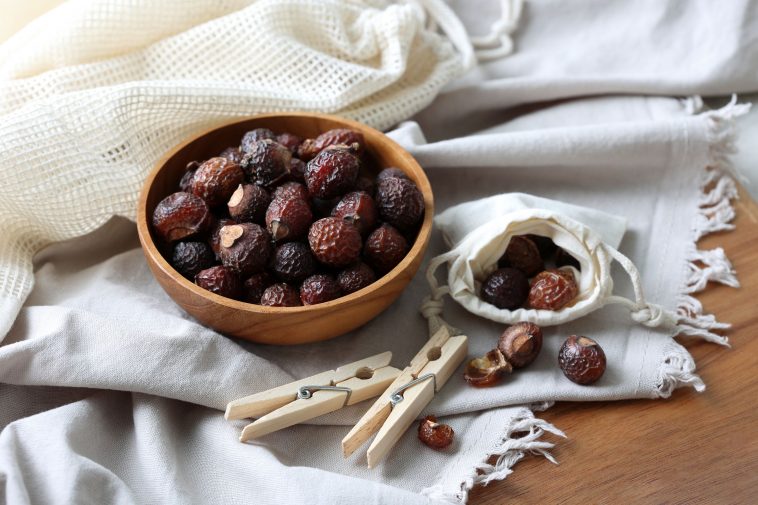Although laundry may just seem like a tiring chore, it actually has a bigger impact on the environment than you think, not to mention your utility bills.
So, it wouldn’t hurt to try to make your laundry more eco-friendly. Reducing your carbon footprint when it comes to your wardrobe can help better the planet and save you some money.
There are multiple ways to make your laundry routine more sustainable, such as ditching the dryer sheets and replacing them with dryer balls.
Dryer balls make your clothes dry faster and are free of any toxic chemicals. Instead of using a stain removal product, you can take advantage of distilled white vinegar to treat spots and blemishes on your clothing.
Another great way to get in on the zero-waste trend is to incorporate soap nuts into your laundry routine. With the average American household doing almost 300 loads of laundry per year, it’s more important than ever to practice green laundry habits.
What Exactly Are Soap Nuts?
Soap nuts are a natural method of cleaning your clothes and can act as an alternative laundry detergent. They are native to the tropical regions of Nepal and India. Historically, they have been used to treat skin conditions like eczema and psoriasis so they won’t irritate sensitive skin.
Soap nuts, or soap berries, are actually just dried berries, so they’re safe for people with nut allergies. The nuts/berries contain saponin, which is a naturally occurring compound in the laundry wash. When introduced to water, it creates a soapy foam that can cut through oil, dirt, and grime on fabrics.
Since soap nuts are nontoxic and biodegradable, they have become an increasingly popular choice over chemical detergents, which can contaminate the water supply and are often harsh on the skin. Soap nuts also don’t leave any waste behind, unlike single-use detergents that come in plastic packaging.

Sign up for Chip Chick’s newsletter and get stories like this delivered to your inbox.


